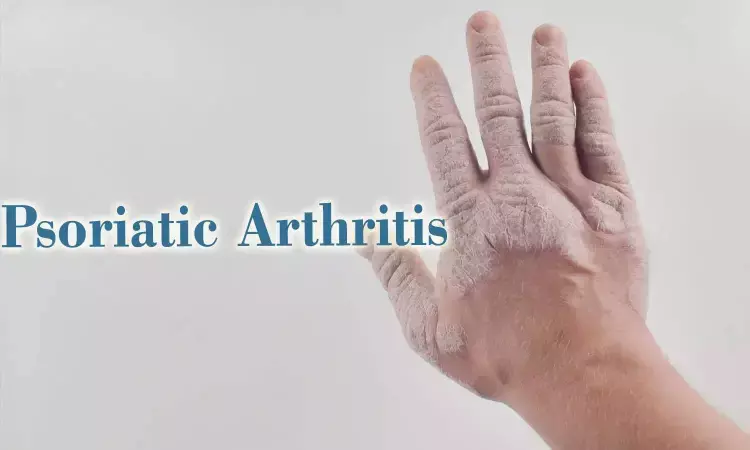- Home
- Medical news & Guidelines
- Anesthesiology
- Cardiology and CTVS
- Critical Care
- Dentistry
- Dermatology
- Diabetes and Endocrinology
- ENT
- Gastroenterology
- Medicine
- Nephrology
- Neurology
- Obstretics-Gynaecology
- Oncology
- Ophthalmology
- Orthopaedics
- Pediatrics-Neonatology
- Psychiatry
- Pulmonology
- Radiology
- Surgery
- Urology
- Laboratory Medicine
- Diet
- Nursing
- Paramedical
- Physiotherapy
- Health news
- Fact Check
- Bone Health Fact Check
- Brain Health Fact Check
- Cancer Related Fact Check
- Child Care Fact Check
- Dental and oral health fact check
- Diabetes and metabolic health fact check
- Diet and Nutrition Fact Check
- Eye and ENT Care Fact Check
- Fitness fact check
- Gut health fact check
- Heart health fact check
- Kidney health fact check
- Medical education fact check
- Men's health fact check
- Respiratory fact check
- Skin and hair care fact check
- Vaccine and Immunization fact check
- Women's health fact check
- AYUSH
- State News
- Andaman and Nicobar Islands
- Andhra Pradesh
- Arunachal Pradesh
- Assam
- Bihar
- Chandigarh
- Chattisgarh
- Dadra and Nagar Haveli
- Daman and Diu
- Delhi
- Goa
- Gujarat
- Haryana
- Himachal Pradesh
- Jammu & Kashmir
- Jharkhand
- Karnataka
- Kerala
- Ladakh
- Lakshadweep
- Madhya Pradesh
- Maharashtra
- Manipur
- Meghalaya
- Mizoram
- Nagaland
- Odisha
- Puducherry
- Punjab
- Rajasthan
- Sikkim
- Tamil Nadu
- Telangana
- Tripura
- Uttar Pradesh
- Uttrakhand
- West Bengal
- Medical Education
- Industry
New study reveals link between psoriatic arthritis and elevated aortic stiffness

Germany: In a groundbreaking discovery, researchers have uncovered a significant association between psoriatic arthritis (PsA) and an elevated risk of cardiovascular diseases. The findings stem from the Prospective PSOCARD Cohort Study, which delved into the relationship between PsA, aortic stiffness, and the Systemic Coronary Risk Evaluation (SCORE).
Findings from the largest carotid-femoral pulse wave velocity (cfPWV)/PsA cohort to date showed that patients with PsA exhibited increased aortic stiffness compared to healthy controls. The study, published in Rheumatology and Therapy, revealed disease duration is the most important independent predictor of elevated aortic stiffness, followed by traditional cardiovascular (CV) risk factors.
"This is one of the largest surrogate CV marker studies in psoriatic arthritis and the first report of an independent association between aortic stiffness and PsA duration suggesting a possible link with disease-related cumulative damage or comorbidities," the researchers wrote.
Psoriatic arthritis, a chronic inflammatory condition affecting the joints and skin, has long been known to correlate with a heightened risk of cardiovascular events. Aortic stiffness measured by carotid-femoral pulse wave velocity has been shown to predict CV risk in the general population. However, the mechanisms underlying this connection have remained elusive until now.
To shed light on the topic, Andreas Schwarting, University Medical Center of the Johannes Gutenberg University, Mainz, Germany, and colleagues aimed to examine cfPWV values of patients with PsA compared to healthy controls. They also evaluated associations of cfPWV with patient- and disease-associated characteristics, as well as with an established traditional CV prediction score of the European Society of Cardiology (Systemic Coronary Risk Evaluation; SCORE), for the first time.
For this purpose, the research team evaluated cfPWV and SCORE in patients with PsA and healthy controls, along with clinical and laboratory disease parameters. They statistically evaluated differences in cfPWV measurements between the two groups and associations of cfPWV with disease- and patient-associated characteristics. One hundred fifty patients with PsA (PSOCARD cohort) and 88 control subjects were recruited.
The researchers reported the following findings:
- cfPWV was significantly higher in the PsA group compared to controls, even after adjustment for confounders.
- cfPWV was independently associated with disease duration (r = 0.304), age (rho = 0.688), glomerular filtration rate (inverse: rho = − 0.264), systolic arterial pressure (rho = 0.351), and red cell distribution width, a marker of major adverse CV events (MACE) (rho = 0.190).
- SCORE revealed an elevated CV risk in 8.73% of the patients, whereas cfPWV showed increased aortic stiffness and end-organ disease in 16.00% of the same cohort.
"cfPWV measurements may help identify subclinical end-organ disease and abnormal aortic stiffness and thus assist cardiovascular risk classification in psoriatic arthritis," the researchers concluded. "Further research and follow-up data from longitudinal studies are warranted."
Reference
Triantafyllias, K., Liverakos, S., Muthuraman, M. et al. Cardiovascular Risk Evaluation in Psoriatic Arthritis by Aortic Stiffness and the Systemic Coronary Risk Evaluation (SCORE): Results of the Prospective PSOCARD Cohort Study. Rheumatol Ther (2024). https://doi.org/10.1007/s40744-024-00676-z
Dr Kamal Kant Kohli-MBBS, DTCD- a chest specialist with more than 30 years of practice and a flair for writing clinical articles, Dr Kamal Kant Kohli joined Medical Dialogues as a Chief Editor of Medical News. Besides writing articles, as an editor, he proofreads and verifies all the medical content published on Medical Dialogues including those coming from journals, studies,medical conferences,guidelines etc. Email: drkohli@medicaldialogues.in. Contact no. 011-43720751


